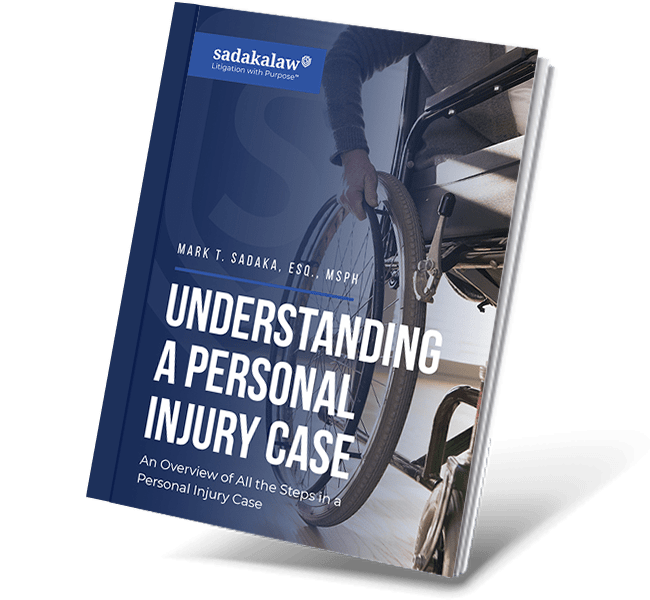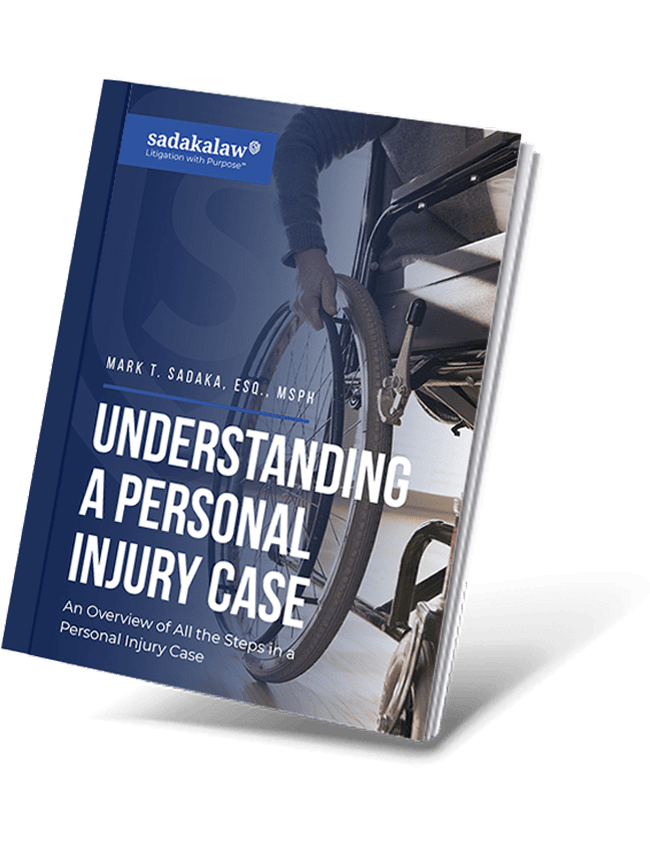It is nice to think that everyone you work with is ethical and law-abiding, always acting in the best interests of their fellow employees and customers. However, this is not always the case. Occasionally, an employee witnesses processes or actions within their company that are illegal, unethical, and corrupt.
Reporting wrongdoing may seem like the best thing to do in theory. However, it can be intimidating. Many employees fear retaliation from their workplace, supervisors, and colleagues through harassment or demotion. In the worst cases, people fear losing their jobs. The financial risk can be incredibly scary.
However, reporting wrongdoing doesn’t have to be dangerous; there are state and federal laws and processes to protect whistleblowers that an experienced attorney can help you navigate. Continue reading for more details and guidance about reporting wrongdoing within a company. To learn more or to seek additional support from an experienced attorney, reach out to the team at Sadaka Law today.
What Is Whistleblowing?
Reporting misconduct done by a company is called whistleblowing. Imagine blowing a whistle in a crowded place, like a sports arena or concert venue: It gets everyone’s attention, including any managers or members of law enforcement. If there’s a problem, those officials can address it.
Whistleblowing in a company isn’t quite so literal; rather, it involves an employee making a report that gets the attention of management or the people in charge in hopes that they will rectify the problem.
A whistleblower reports unethical, dangerous, or fraudulent behavior. For example, suppose an employee notices that the billing department in the hospital where they work knowingly overcharges patients for medical services. In that case, they may want to expose that behavior to stop it from happening. Or, an employee might notice that their managers in a restaurant do not enforce food safety regulations, putting their guests in danger of contracting food poisoning. Other examples of wrongdoing that people report include:
- Workplace discrimination and harassment
- Insider trading
- Data misuse
- Gross mismanagement or waste of funds
- Corruption
- Violating human rights
- Breaking the law
- Risking public health or safety
Some employers may tell employees that whistleblowing is a betrayal of company loyalty. However, if anything, whistleblowers maintain the integrity of workplaces. After all, for many whistleblowers, reporting fraudulent activities feels like an ethical responsibility. By reporting violations, whistleblowers can ensure their company abides by the law and treats its employees and customers respectfully.
How To File a Whistleblower Complaint
Whether you work in the public or private sector impacts how you can report wrongdoing. Different companies and organizations have different systems for making reports. Sometimes, whistleblowing entails alerting a senior official at your company of the alleged wrongdoing. This can happen in person or electronically, as in an email.
Some workplaces in the public sector, like the Department of Justice, have specific internal channels and processes to report wrongdoing. Search your company’s handbook and resources to learn about what processes are already in place.
Be sure to have evidence to corroborate your claims. Different companies will have different requirements, so make sure you understand exactly what evidence your company needs. You may need to spend some extra time gathering evidence; it is worth being meticulous about this step so that your report has the best chance of being taken seriously.
You have legal protections if you have reported wrongdoing and believe your company retaliated against you. You can file a complaint against your company with the Occupational Safety and Health Administration (OSHA). Your complaint must allege that:
- Your activity was protected by whistleblower protection laws
- Your employer knew about or suspected your whistleblowing activity
- Your employer took “adverse action” against you
- That adverse action was motivated by your whistleblowing
Then, the OSHA representative will follow up and complete an investigation, where you will be able to provide evidence. You must follow up with the OSHA representative; otherwise, the case will be discarded. You cannot remain anonymous when filing a whistleblower complaint with OSHA.
Statute of Limitations in New Jersey

New Jersey’s Conscientious Employee Protection Act (CEPA) protects whistleblowers from retaliation for disclosing wrongdoing. However, because of the statute of limitations, you must file a complaint within one year of the last act of retaliation from the company. Otherwise, your complaint will be ineligible.
What To Consider Before Reporting Wrongdoing
If you are considering reporting unethical behavior, you may feel anxious, overwhelmed, or unclear about which steps to take and how to protect yourself. Here are some important considerations to keep in mind when reporting wrongdoing.
Valid Case
Before moving forward, ensure you have a valid case. Research which laws or regulations you believe the company broke. Are you looking at state laws, federal laws, or internal policies? You must have a comprehensive understanding of all the policies to understand whether any of them have been broken and in what ways.
Additionally, keep in mind that whistleblowing does not apply to personal grievances. Be sure that your allegations are relevant to the public, not just you. Once you are certain your concerns are valid, you must gather evidence and decide how you want to report it.
Gathering Evidence
What evidence do you have of the wrongdoing? Do you have emails, documents, or photos? Other people can also be key in this stage; if there are any witnesses, they can help corroborate your claims. Types of evidence can include:
- Letters
- Notes
- Policies
- Text messages
- Voicemails
- Phone logs
- Meeting minutes
- Financial records
- Memorandums
Internal vs. External Reporting
Internal whistleblowing reports wrongdoing through the internal channels of a company or by meeting with management at the company. External reporting involves a separate third party, typically the police, government, or media.
People tend to opt for external whistleblowing when the wrongdoing is severe or when they believe the internal channels to be ineffective or, in some cases, equally corrupt. However, external reporting is usually much more public. You must consider whether you are ready for public attention and scrutiny.
Seeking Legal Advice
Deciding whether to remain internal or go external can be challenging. Add in the need to gather evidence and weigh the validity of the case, and it is no wonder many people get overwhelmed. Legal advice can be very helpful in considering all these factors. An experienced attorney from Sadaka Law can provide guidance and experience to help you navigate the systems and processes involved with whistleblower reporting.
Laws of Whistleblowing in New Jersey

CEPA is New Jersey’s primary whistleblowing law. It covers requirements for whistleblowers and employers.
A key requirement for whistleblowers is that they bring the issue forward to the employer via written notice before they begin a whistleblower claim. Then they must give the employer time to correct the matter. There are some exceptions: If the situation is an emergency, if the employer already knows about the issue, or if you reasonably fear repercussions as a result of providing notice, you may not be required to notify your employer.
For employers, CEPA makes it illegal to retaliate against employees who provide written notice about wrongdoing or who report wrongdoing to any authorities. CEPA doesn’t only protect employees who actively “blow the whistle,” but it also protects employees who:
- Testify and provide information during an investigation or hearing against the employer
- Provide evidence about an illegal activity to an investigative body
- Object to or refuse to engage in illegal, dangerous, or unethical behavior
Retaliation can look different, depending on the company and the circumstances. Some examples of retaliation are:
- Termination
- Demotion or transfer
- Negative performance evaluation
- Intimidation, abuse, or harassment
If you think you are being retaliated against, document everything as much as possible. You must be able to prove that your company’s actions were a result of your whistleblowing, not anything else.
Consider Finding an Attorney
With so many legal considerations, an experienced attorney is a great asset if you wish to report wrongdoing within your company. A lawyer can help an employee determine whether there was wrongdoing at their place of work and help them provide written notice. If necessary, an attorney can also help guide employees as they report that wrongdoing to other authorities within the company.
Whistleblowing can be a scary process. Many people don’t report wrongdoing because they fear legal and financial consequences. Others don’t make a report simply because they do not know how. Legal counsel can address all of these concerns.
Reach Out to Sadaka Law
If you have witnessed misconduct in your workplace and are unsure what to do next, reach out to an experienced attorney at Sadaka Law. Reporting wrongdoing can feel intimidating. Let our team guide you through your options and important legal considerations to help you make an informed decision about how you want to proceed.
You can feel confident that you have the experienced team at Sadaka Law supporting you every step of the way. Contact our office today to learn more. We can answer any questions you have about your rights and help move your case forward.


